On the 17th February, One Young World hosted its first ever Bahamas Caucus entitled "Climate Action: Roadmap to Climate Recovery in the Caribbean". This Caucus was hosted for our community in the region to engage with the opportunities to connect and collaborate on tackling Climate Action in the region.
The Caucus welcomed more than 20 people in person, including One Young World Co-Founder David Jones and The Prime Minister of the Bahamas, Honourable Mr. Philip Davis Q.C. It also welcomed more than 80 people, who participatd digitally from more than 20 countries.
The Caucus was organised in partnership with The Office of the Prime Minister, and the University of The Bahamas.
The Caucus began with a powerful rendition of the Bahamas National Anthem, before the Welcoming Remarks by David Jones, Co-Founder of One Young World.
In his remarks, David spoke of the story of One Young World which was created in 2010, to "harness the power of young leaders" who are creating meaningful change in their communities. He also spoke of the important role the Caribbean community plays in enhancing One Young World's mission, and the significance of the first time One Young World has been hosted by the government of a Caribbean nation.
Finally, he spoke of the importance of climate action, with a particular focus on its impact on oceans. He noted that "the core focus has to be ocean safeguarding, particularly for the Caribbean region." He drew particular attention to the fact that "over 12 million tonnes of plastic end up in the ocean every year, expected to triple by 2040... (meaning that) there is no marine environment not impacted by plastic pollution." He ultimately concluded that youth leadership is key to protecting marine ecosystems, and tackling the wider problem of climate change.
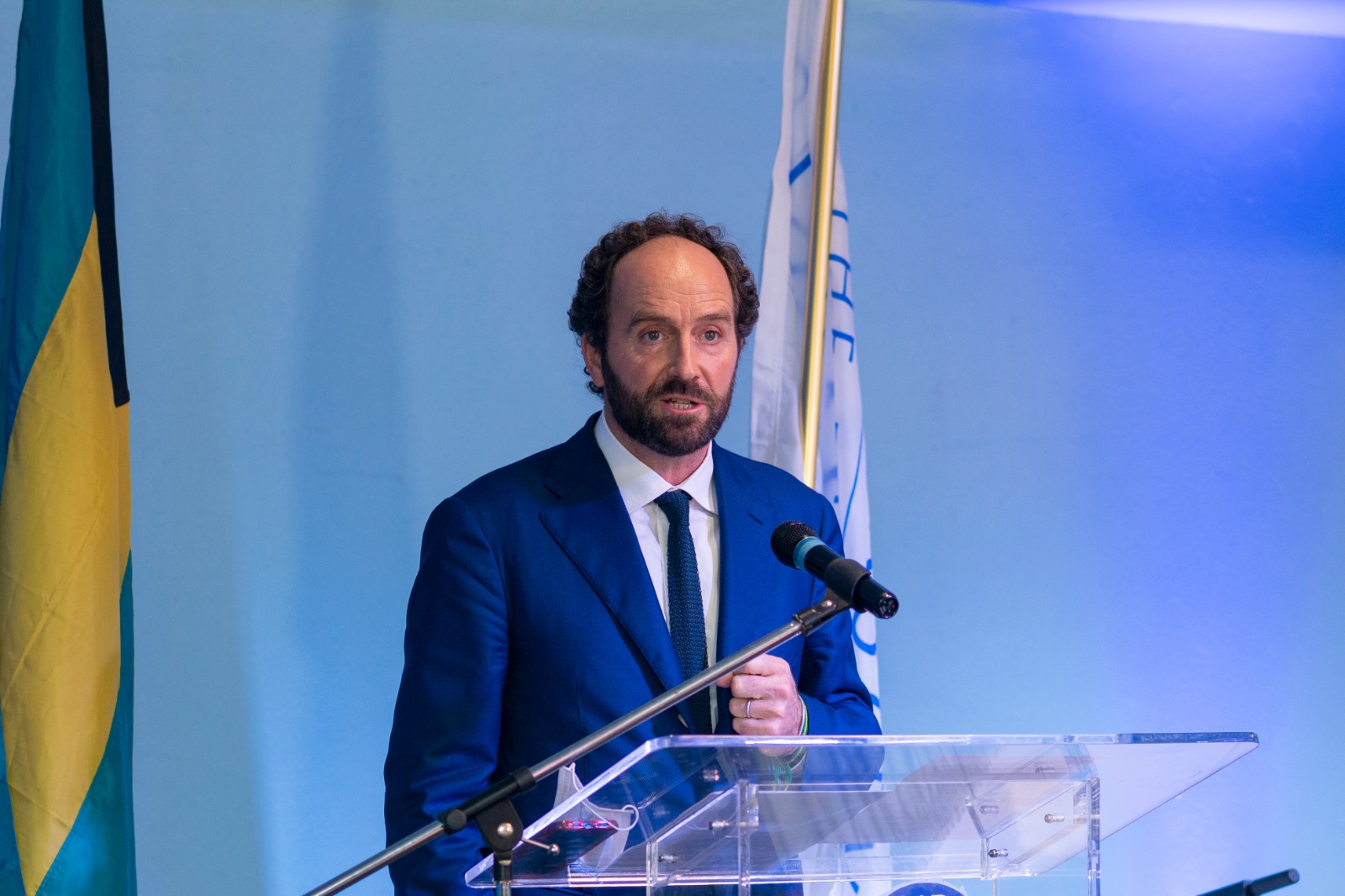
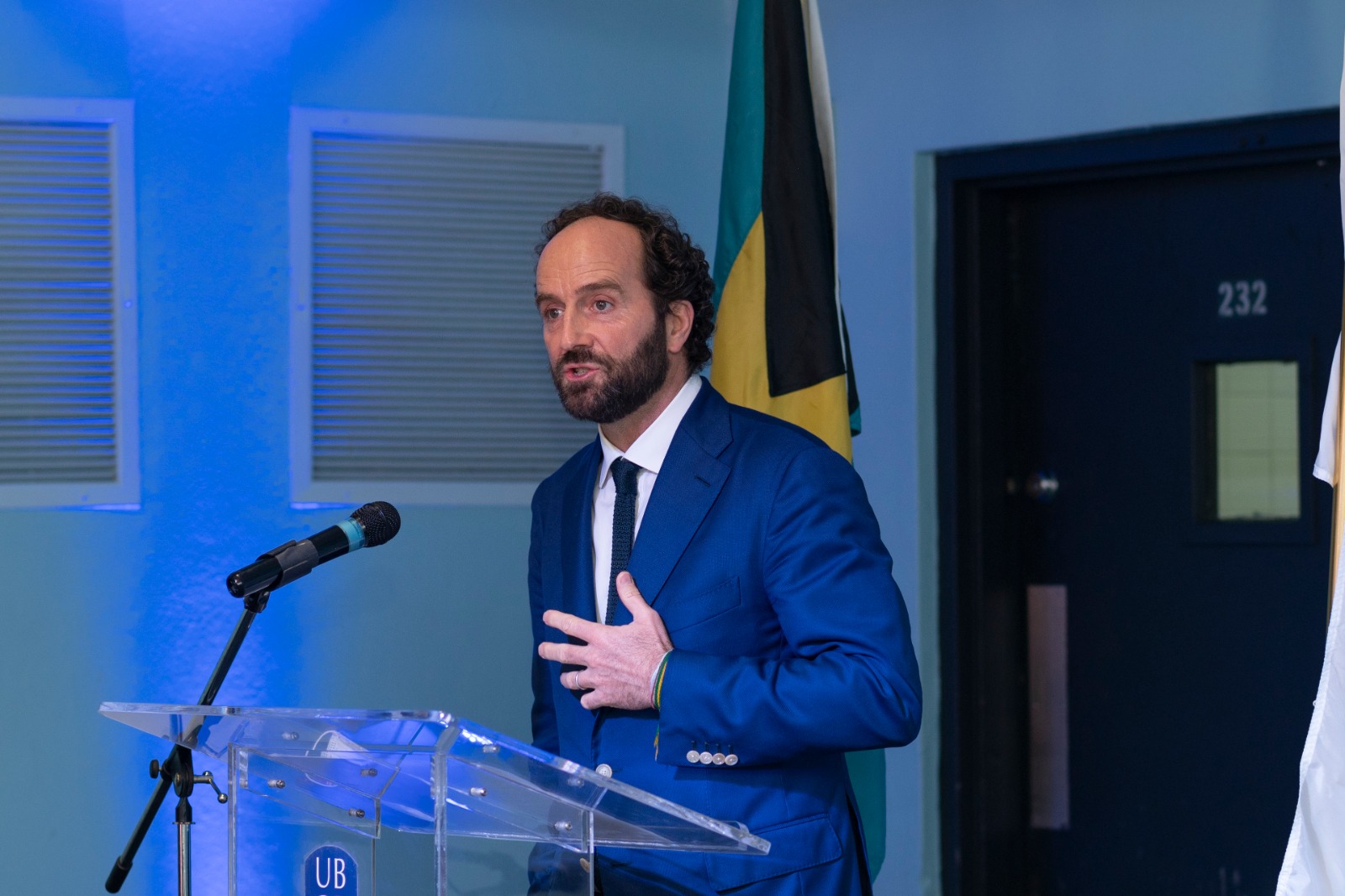
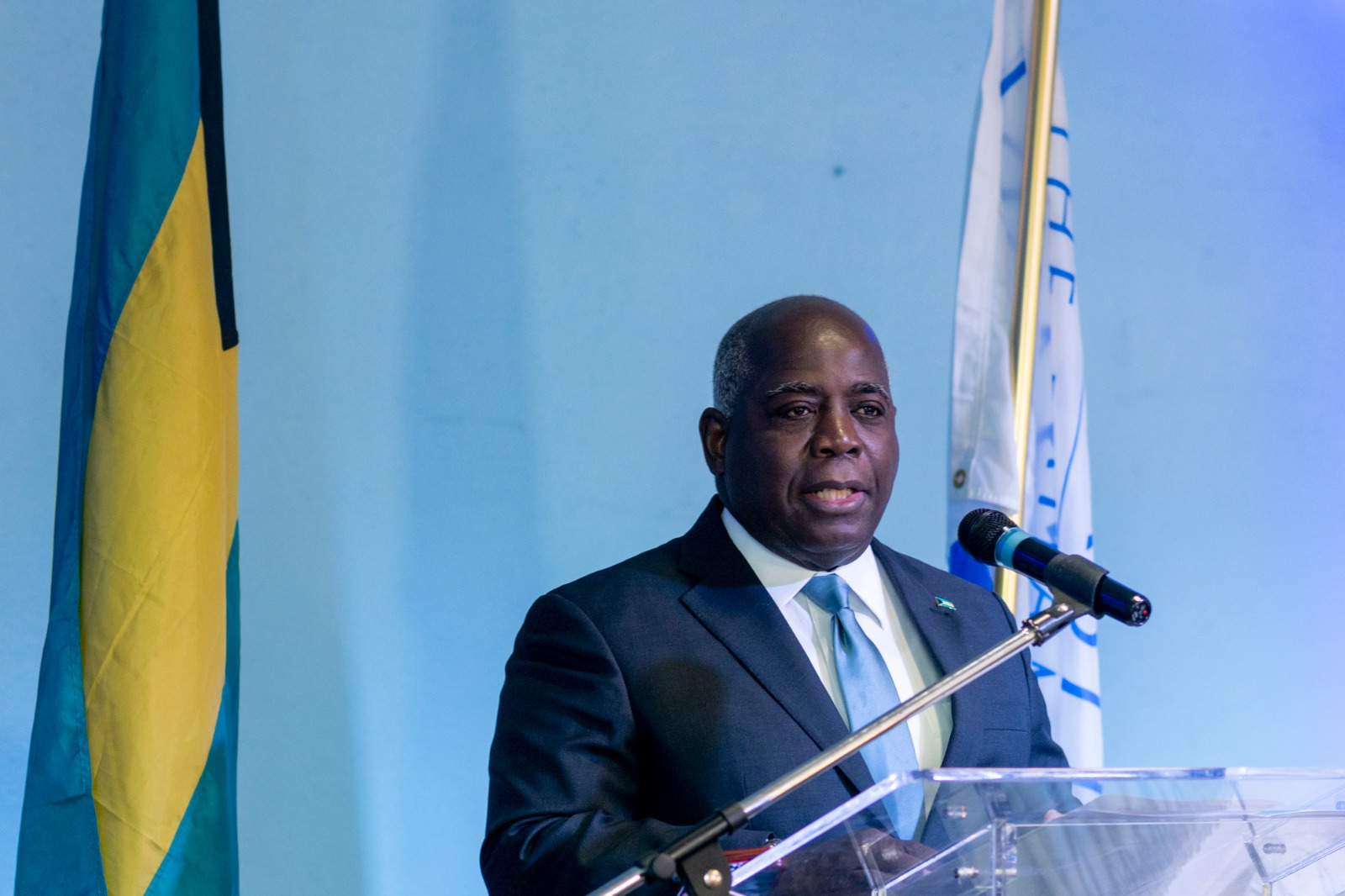
The Prime Minister of the Bahamas, Honourable Mr. Philip Davis Q.C, addressed the audience, delivering a powerful keynote speech, speaking of the strength and resilience of young leaders.
In his speech, he spoke of the relevance of COP26 and how "steps taken are not enough and not fast enough" to combat climate change. He, however, mentioned that "we must not give up.. as our lives depend on it.” He finally spoke of the optimism that One Young World gives him, speaking of its commitment to internationalism and the bold, committed activism of the Ambassadors.
As you take on the great issues of our times, no activism cause worth fighting for was won overnight. Just because the current reality is stacked against the cause, does not mean success is not possible.
Honourable Mr. Philip Davis Q.C
The first Panel session featured the Government represented Climate Team from the Office of the Prime Minister and included:
- Rochelle Newbold (Special Advisor Climate Change & Environmental Matters, Office of the Prime Minister)
- Larissa Cartwright (Advisor - Environmental Matters and Climate Change, Office of the Prime Minister)
- Mr. N. Charles Hamilton (Climate Change Advisor)
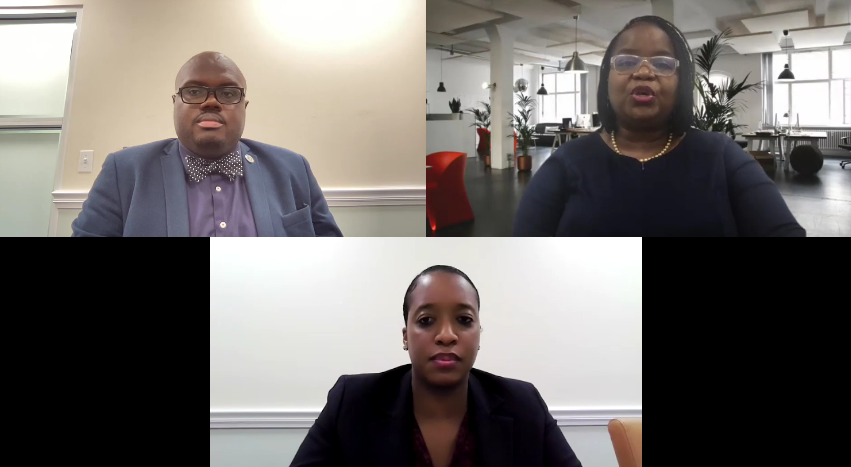
The panelists presented the work they are doing to engage young people in the Bahamas and spoke of the importance of empowering young leaders in the region to take climate action in their communities. They also additionally highlighted the Climate Change Youth Conference that will be held at the University of the Bahamas in July 2022.
Larissa interestingly spoke of the data gap when tackling climate change, which would delay actions in combating climate change. She spoke of climate action starting with "youth resilience", stressing the importance of increasing opportunities for young leaders.
N. Charles spoke of the necessity for young leaders, particularly those from small island states, to be meaningfully engaged and included in climate action discussions. He encouraged young leaders to be at the realm of combating climate change, and stressing the importance of green jobs in empowering young leaders.
Rochelle highlighted the power of the newer generation in using ways of managing the environment including training on vocational skills, and using technology to manage the environment. She also remarked the significance of creativity and involving young leaders in policymaking. She highlighted that it was in young leaders' rights to demand that change is made by those in power.
You have the loudest voice in the room as you have the opportunity to make that change.
Rochelle Newbold
The second Panel session featured climate change activists from The Bahamas, including:
- Kelli Armstrong (First Bahamian Climate Change Professional (CC-P), certified by the Association of Climate Change Officers (ACCO))
- Barisse Griffin (Expert in Disaster Risk Management & Development)
- Chaz Garrway - (Climate Reality Leader, trained personally by former US Vice President Al Gore)
The Panel was moderated by Carmen Jimenez Martinez, Latin America Programmes Officer at One Young World.
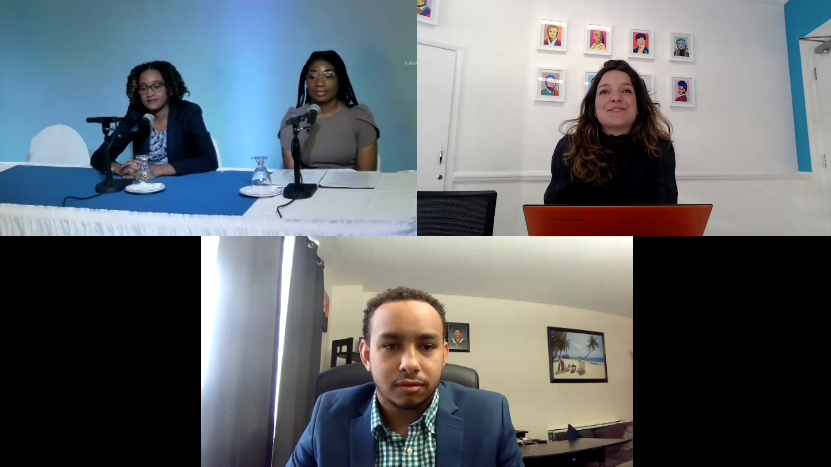
The panelists spoke of their experiences of experiencing and tackling climate change in their prospective fields and careers.
Barisse spoke of the cascading consequences Caribbeans are facing when it comes to disasters, drawing to the linkage between environmental disasters, the global pandemic, and the economic ramifications. She highlighted the need to invest in climate change initiatives - juggling multiple issues at the same whilst trying to unlearn past learning and move into a future that is climate risk-aware. also having financial limitations. She also encouraged governments and stakeholders to support youth climate initiatives, particularly through venture capital funding.
Chaz highlighted, similarily to Larissa, the gaps in data when assessing climate change impacts - when the data is not consolidated it makes it difficult to determine which decisions and actions to take. Important to consolidate the data. He also encouraged people to be curious and learn... not to take what the media is saying at face value but to research the work yourself, and to take action, and "take it upon yourself to do something".
Kelli spoke of different barriers to engage in climate action (speaking of financial, institutional, and education barriers which limit the capacity of young leaders to forward climate action. She also highlighted the importance of scholarships and bursaries in supporting young leaders in feeling empowered. She also importantly highlighted the importance of everyone working together, as "the most successful climate actions are the best-coordinated ones".
The third session featured a presentation from the Bahamas National Trust representatives, which included:
- Jewel Beneby (Science Officer)
- Chantal Curtis (Parks Planner and New Providence Parks Manager)
- Gloria Miller (Senior Education Officer)
In their presentation, they spoke of the important work the Bahamas National Trust does in building resilience against a changing climate in the Bahamas. They highlighted the need for a "climate-smart management plan" in order to preserve the climate and its surroundings. Biodiversity, in particular, was highlighted as an important area of preservation as biodiversity will be hit hardest by the impacts of climate change. The focus of the Bahamas National Trust is Biodiversity Conservation, finding solutions that preserve ecosystems whilst empowering young leaders.
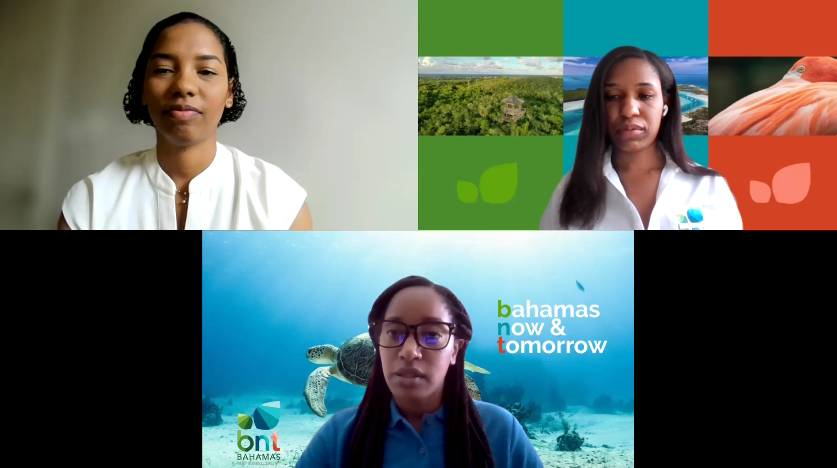
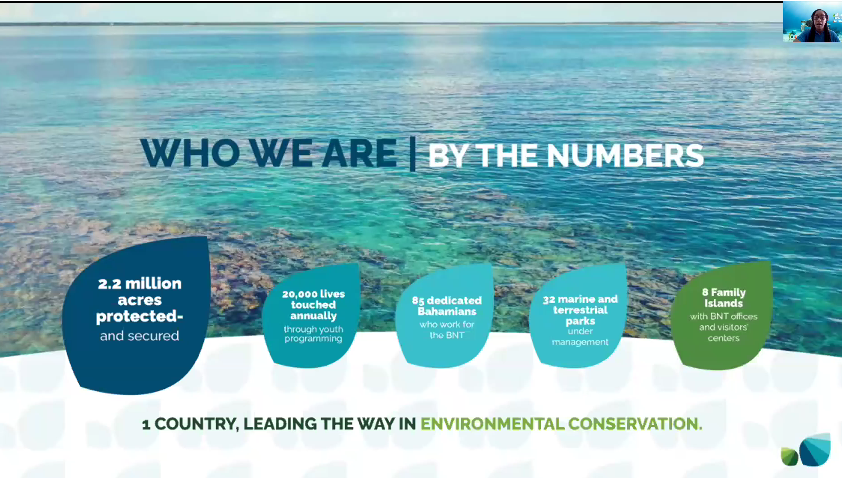
The third Panel session featured a discussion on climate action companies: focusing on "career opportunities that merge with climate action and climate responsibility", featuring:
-
Allanah Vellecot, Coral Restoration Specialist at Coral Vita
-
Lincoln Deal, Founder of Eeden Farms
The Panel was moderated by Marc Alain Boucicault (One Young World Ambassador)
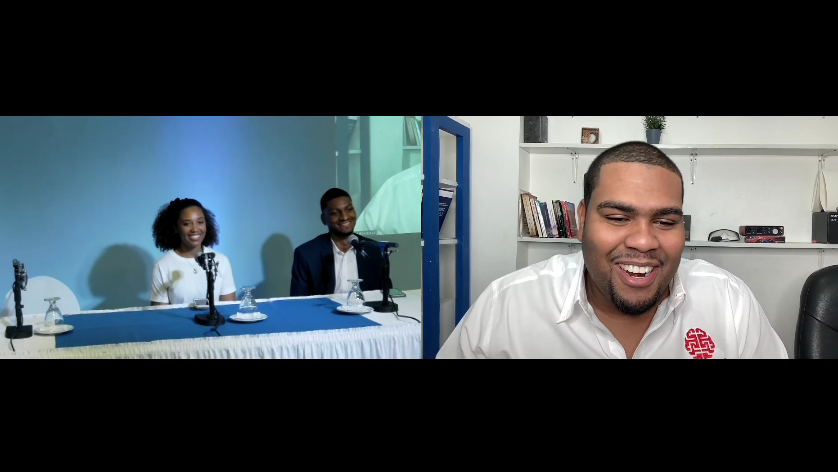
Alannah spoke of her work as a Marine Scientist with Coral Vita, a recent Earthshot Prize winner, highlighting the importance of coral reefs in maintaining marine life and generating revenue for those in the Caribbean. She highlighted that healthy coral reefs provide an estimated "$2.7 trillion per year in goods and systems", supporting up to 25% of all marine life, and provide a protein source for over a billion people. This, therefore, highlights the importance of building climate resilient corals against warming and acidifying oceans, generating healthy reefs. She notably spoke of the importance of community engagement, engaging multiple stakeholders such as scientists, policy makers, local businesses and the Bahamian government to protect future generations.
Lincoln spoke of Eeden Farms starting as a research project initially, before evolving into a tech business that empowers women as farmers. He highlighted the relevance of climate change, highlighting that "tangible steps have not been taken". He pushed for more social and political responsibility to be taken, as well as greater policy attention to be focused on climate action. He spoke of Eden Farm's work to merge agriculture with technology, creating 150 jobs within he community. In order to move forward, he stressed that we need to be intentional with promoting advocacy with our respective governments, stressing the need for Caribbean islands to collaborate with one another, as "together as one, we can become a powerful voice."
Our kids and our families will be the most impacted in the years to come as this climate crisis continues to evolve. It just takes one hurricane for you to become a climate refugee, so we need to be intentional about getting to action, and promoting advocacy on a higher level.
Lincoln Deal
The final session of the Caucus was an United Nations Framework Convention on Climate Change (UNFCCC) session featuring Ms. Alma Jean (Team Lead, Biennial Update Reports Unit, Transparency Division).
In this session, Alma discussed the growing prevalence of climate change, drawing attention to weather changes experienced across regions caused by climate change. In her presentation, she drew attention to two differing ways in which climate change can be responded to, through:
- climate change adaption, in which there are adjustments in ecological, social, or economic systems in response to actual or expected climate stimuli, focusing on building resilience to climate change.
- climate change mitigation, in which actions are taken to decrease the emissions released into the atmosphere and in reducing the current concentration of carbon dioxide (CO2) by enhancing sinks (e.g. increasing the areas of forests)
She also highlighted the various ways in which young leaders can be empowered to take climate action both in their communities and on a global scale, highlighting that "no country is too small to have an impact".
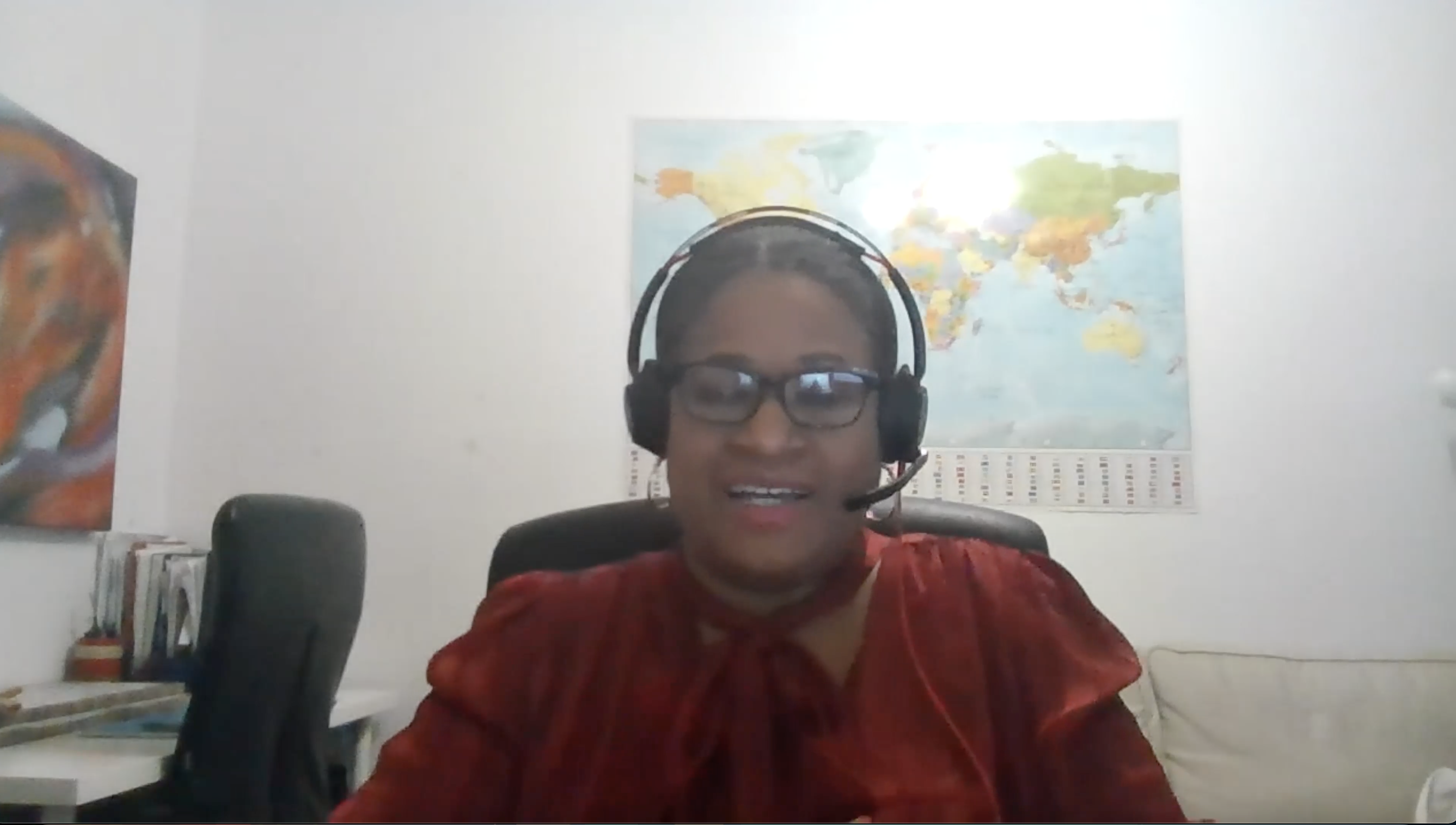
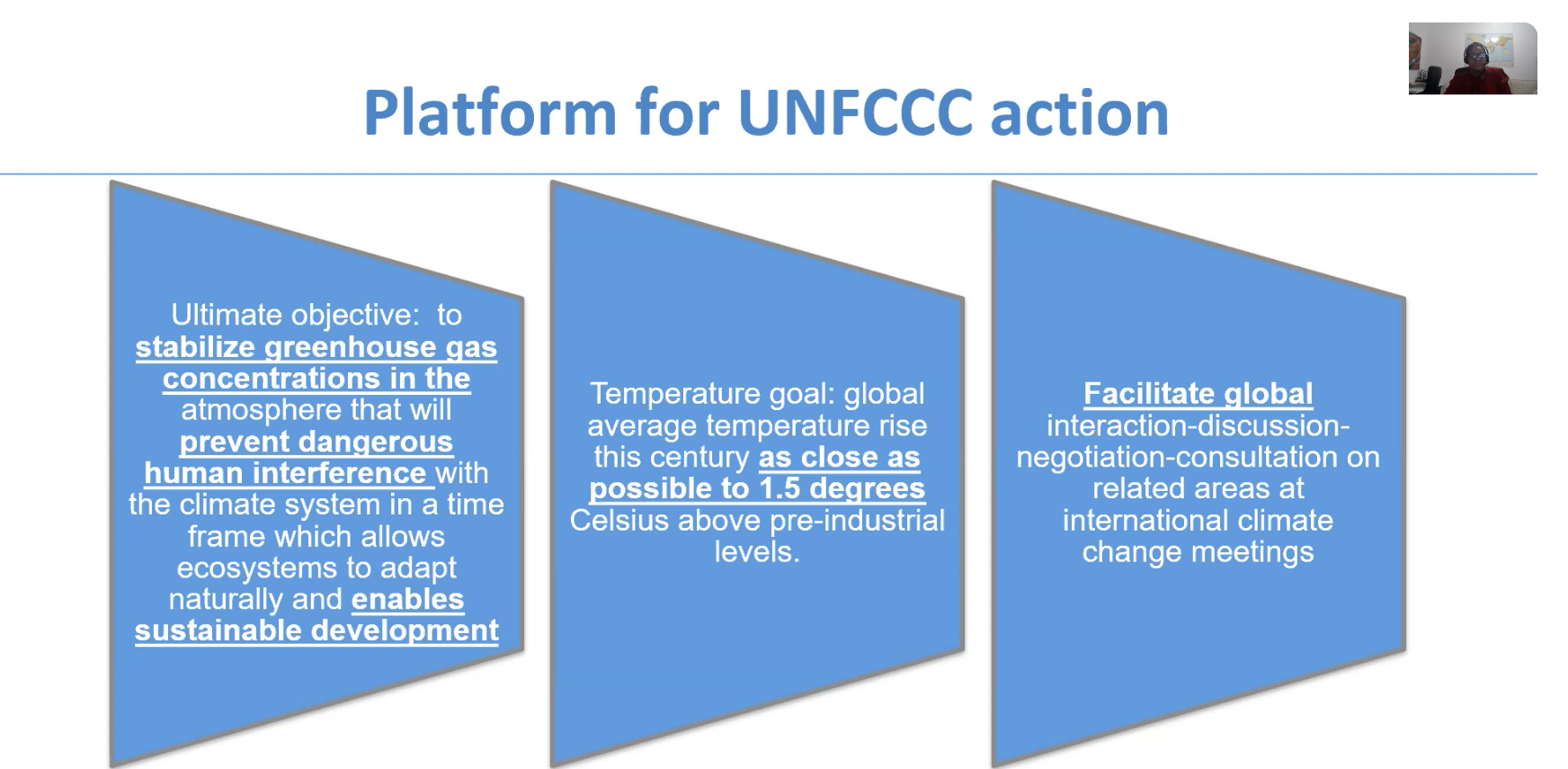
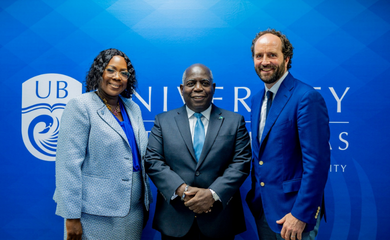
A big thank you to the University of the Bahamas who hosted this Caucus, and the Office of the Prime Minister's Team including OYW Ambassador Shanaye Smith, and the OYW Coordinating Ambassador for the Caribbean Kurba-Marie Questelles!